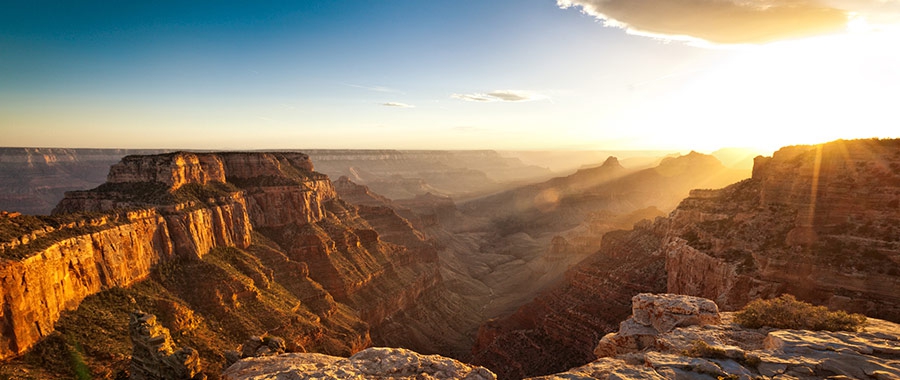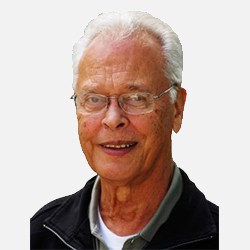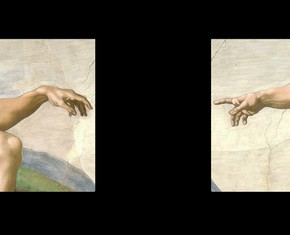The views expressed in our content reflect individual perspectives and do not represent the authoritative views of the Baha'i Faith.
I recently received a copy of an individual’s quest for an answer to the age-old question: If God is perfect, then why isn’t His creation perfect as well?
Most of us have probably asked this same basic question. In fact, people have probably been asking it for as long as people have existed—it’s a universal FAQ, maybe humanity’s most frequently-asked question. The questioner asked:
If God is the essence of every attribute, exalted above everything, perfect … God, who created the whole of creation and everything in it from nothing … surely, creation should be perfect also. And everything in it. A perfect creator MUST by definition create a perfect creation. That includes us, and the Earth, and our feelings, and desires. Every atom attests to God’s might, and not one does not ‘glorify his Holy name.’ Yet here we are—mankind. Through the ages, forever screwing up, being selfish, clinging to dogma, missing the point, sinning. Why? It just doesn’t make sense to me in the slightest.
And what about all the bloodshed, disunity and suffering caused by the misinterpretation of divine revelations and new manifestations? Did God in his ultimate might and wisdom not foresee this would happen? He must have done (so). If the idea of progressive revelation, that all the manifestations are ultimately one, that the prophesies for (a) new manifestation were so clear and obvious—why then, in every new age, the same problems over and over with all their myriad negative consequences? If it’s so obvious, so clear—why hasn’t mankind responded as such? I really don’t understand.
So I’ll take a stab at answering this frequently asked question. Here goes: as we look at the various ontological levels that make up all that we know about creation, we find that they are hierarchically organized, from mineral to human and beyond, with each endowed with a particular characteristic or set of characteristics—mineral with the power of cohesion; vegetable with the capacity for growth by binding energy from the sun through the process of photosynthesis; animal with its ability to perceive through the five senses, to move about, and to engage in elementary communication and thought; human with our capacity of conscious knowing through psycho-motor, perceptual, cognitive, affective, and volition—our ability to formulate an intention and then pursue its accomplishment, all coalescing in dynamic and functional integration and unison.
Consciousness, as defined by Dr. Elena Mustakova-Possard, is the function of an internal dialogue between mind and heart guided by volition. (This, of course, is my understanding. I hope that I haven’t done a disservice to her years of intense research on the phenomenon of consciousness by over-simplifying it in the above reduced summary. Allow for that possibility by reading directly what this fine scholar has researched and explicated in her articles, which can be found in The Journal Of Moral Education and in her book.)
When one commits to the most fundamental of assumptions, i.e., postulating the existence of God—not just an entity that is up one notch on the ontological ladder from man’s superior intelligence—but rather God the Creator, Who by definition is beyond the reach of man on any dimension of human knowing, we have no choice but to accept the limits of those boundary conditions within which we are forced to operate as humans. Apparently, that’s the way God chose to create it. Hence, Baha’is refer to God as an “unknowable Essence:”
To every discerning and illuminated heart it is evident that God, the unknowable Essence, the Divine Being, is immensely exalted beyond every human attribute, such as corporeal existence, ascent and descent, egress and regress. Far be it from His glory that human tongue should adequately recount His praise, or that human heart comprehend His fathomless mystery. He is, and hath ever been, veiled in the ancient eternity of His Essence, and will remain in His Reality everlastingly hidden from the sight of men. – Baha’u’llah, Gleanings from the Writings of Baha’u’llah, pp. 46-47.
However, unlike all of the ontological levels below mankind (animal, vegetable, and mineral) who have no conscious awareness of the reality of those levels above, through the gift of consciousness we humans can speculate beyond the limitations of our ontological constraints.
We do this all the time in science by formulating a hypothesis based on a set of assumptions about some phenomenon we want to know more about, and then gathering data which either affirm or disaffirm the validity of that hypothesis and the assumptions which support it. In short, we do so initially, not based on fact, but on faith.
The difficulty and complexity with which this is done increases as one goes up the ontological ladder, from mineral, to vegetable, to animal, and to man, in pursuit of the unknowns at each level. But because of this gift of consciousness and the degree to which it has been developed in humankind, we can speculate beyond the knowable into ultimate unknowables with some degree of success. But as implied in the question being addressed, there is a point beyond which we cannot go.
Our only hope is to make the assumption of a God the Creator and then act in accordance with that magnificent hypothesis, that greatest of assumptions, and then proceed accordingly. Just as with the testing out of a hypothesis related to the mentioned ontological levels, we can test out the validity of an assumption that God the Creator does exist by acting in accordance with his revelation. Our experience will then give evidence of the validity of that assumption, just as scientific fact emerges from experience.
You May Also Like
Comments

















Then I thought, why would God want to create perfection? It is totally impossible to fathom the mind of an all - creative being, but when God decided to create would He want a mirror image ...of perfection. More interesting to create an inherently imperfect world, to talk to someone with a divergent idea. A personal view, but it fits the evidence as to the nature of God and creation.